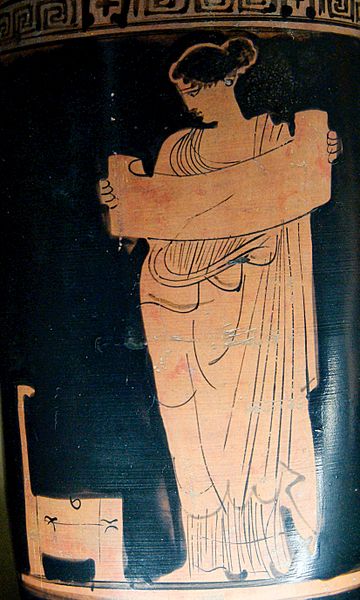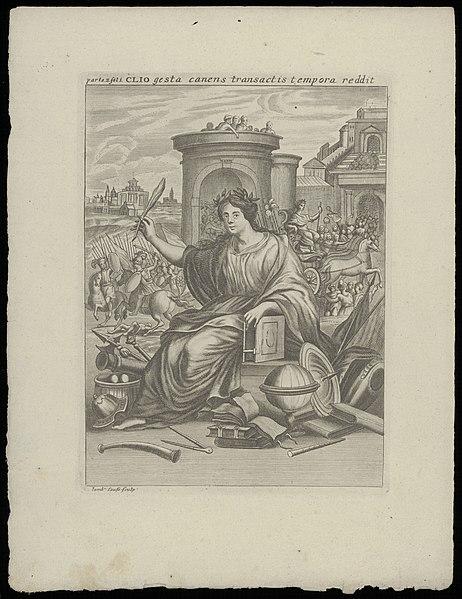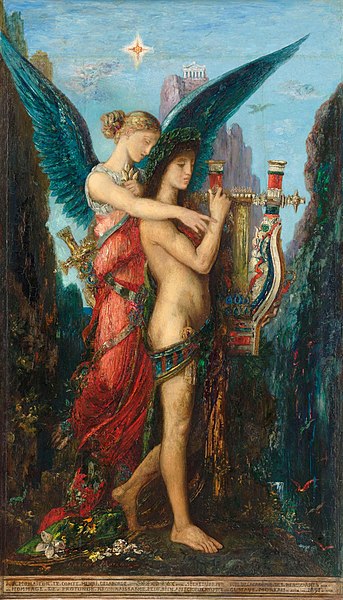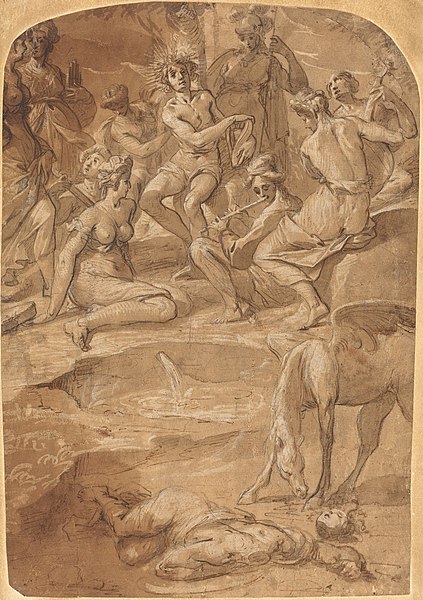Euterpe was one of the Muses in Greek mythology, presiding over music. In late Classical times, she was named muse of lyric poetry. She has been called "Giver of delight" by ancient poets.
Euterpe on an antique fresco from Pompeii
Euterpe Pérez Galdós
Rome mint. Laureate head of Apollo right; two crossed tibiae behind / Euterpe, the Muse of Music and Lyric Poetry, wearing long flowing tunic and peplum, standing right, supporting her head with her left hand by resting her elbow on column, and holding two tibiae in right hand; Q • POMPONI downwards to left, MVSA downwards to right. Quintus Pomponius Musa
Roman mosaic of Euterpe, 2nd century
In ancient Greek religion and mythology, the Muses are the inspirational goddesses of literature, science, and the arts. They were considered the source of the knowledge embodied in the poetry, lyric songs, and myths that were related orally for centuries in ancient Greek culture.
Muse, perhaps Clio, reading a scroll (Attic red-figure lekythos, Boeotia, c. 430 BC)
Print of Clio, made in the 16th–17th century. Preserved in the Ghent University Library.
Gustave Moreau: Hesiod and the Muse (1891)—Musée d'Orsay, Paris
Apollo and the Muses on Mount Parnassus, c. 1650, by Johann Christoph Storer. Held at National Gallery of Art








